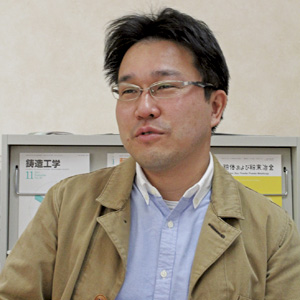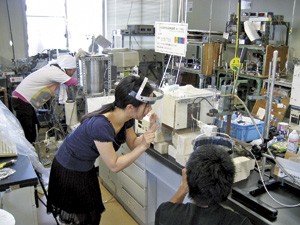
-

Energy
-

Mechanical / Aviation
-

Metal
MIZUMOTO Masayuki Professor
Course
-
Faculty
Materials Science
-
Master's Program
Regional Industry
-
Doctoral Program
Fundamental and Applied Sciences
Degrees Obtained
- Doctoral Degree (Engineering)
Fields of Research
- Composite Materials
- Casting Engineering
- Joining Engineering
Profile
- July 2000: Completed Doctoral Program, Faculty of Engineering, Kyushu University
- April 2000 - March 2007: Assistant, Department of Material Engineering (dismantled organization), School of Engineering, Nagasaki University
- September 2006 - December 2006: Visiting Researcher, Norwegian University of Science and Technology
- April 2007 - October 2009: Assistant, Department of Material Engineering (dismantled organization), School of Engineering, Nagasaki University
- November 2009 – August 2016:Present: Associate Professor, Department of Materials Science and Engineering, Faculty of Engineering, Iwate University
- September 2016 – Present: Professor, Department of Physical Science and Materials Engineering, Faculty of Science and Engineering, Iwate University
Research Themes
The creation of compounds of cast iron and different materials, and the development of compound technologies
Metal matrix composites (MMCs) that combine metals with other materials such as ceramics have various excellent properties, such as high strength and thermal conductivity, so they are expected to be applied to a broad range of fields, centered around applications in next-generation transportation devices and industrial machinery. My research involves the development of technologies for making ideal composites of metals and ceramics, as well as making it possible to mass-produce MMCs less expensively than conventional technologies, in order to further increase their capabilities.

Teaching Philosophy
I educate students to be adaptable in a broad range of fields for the research and development of various organic and inorganic materials, based on a fundamental knowledge of metal materials.


